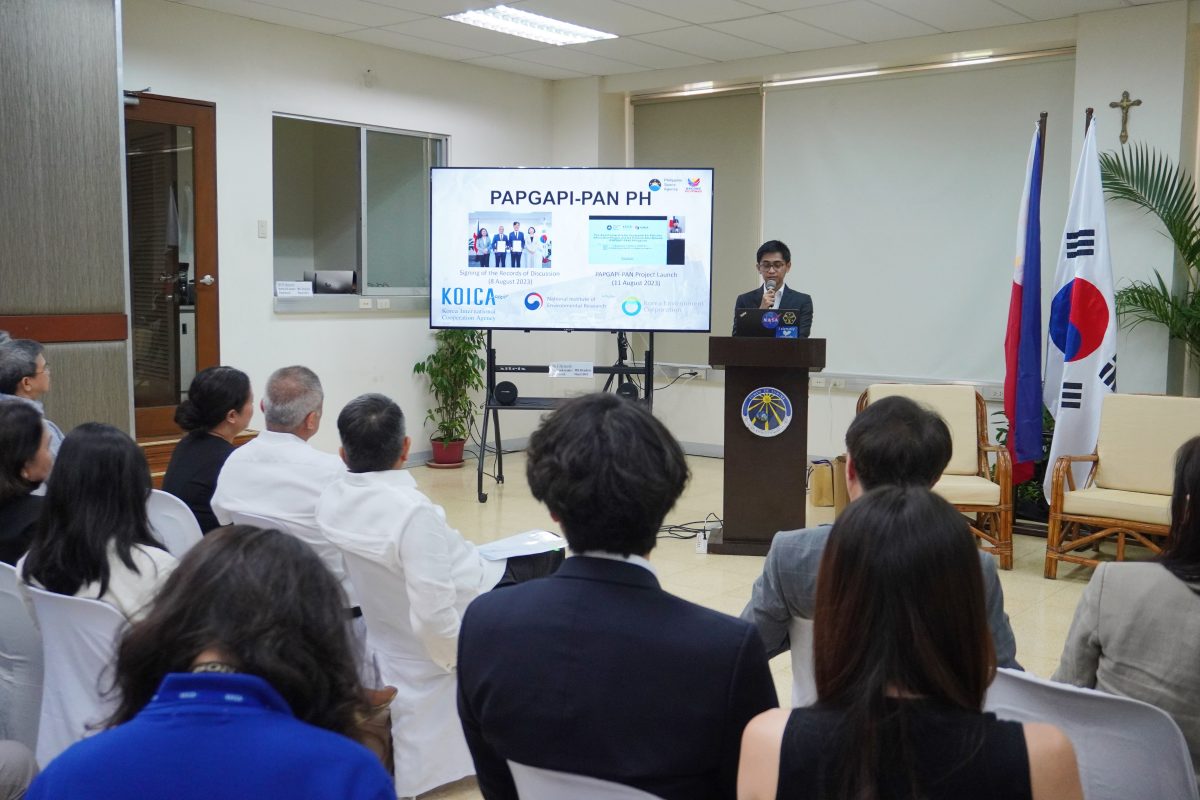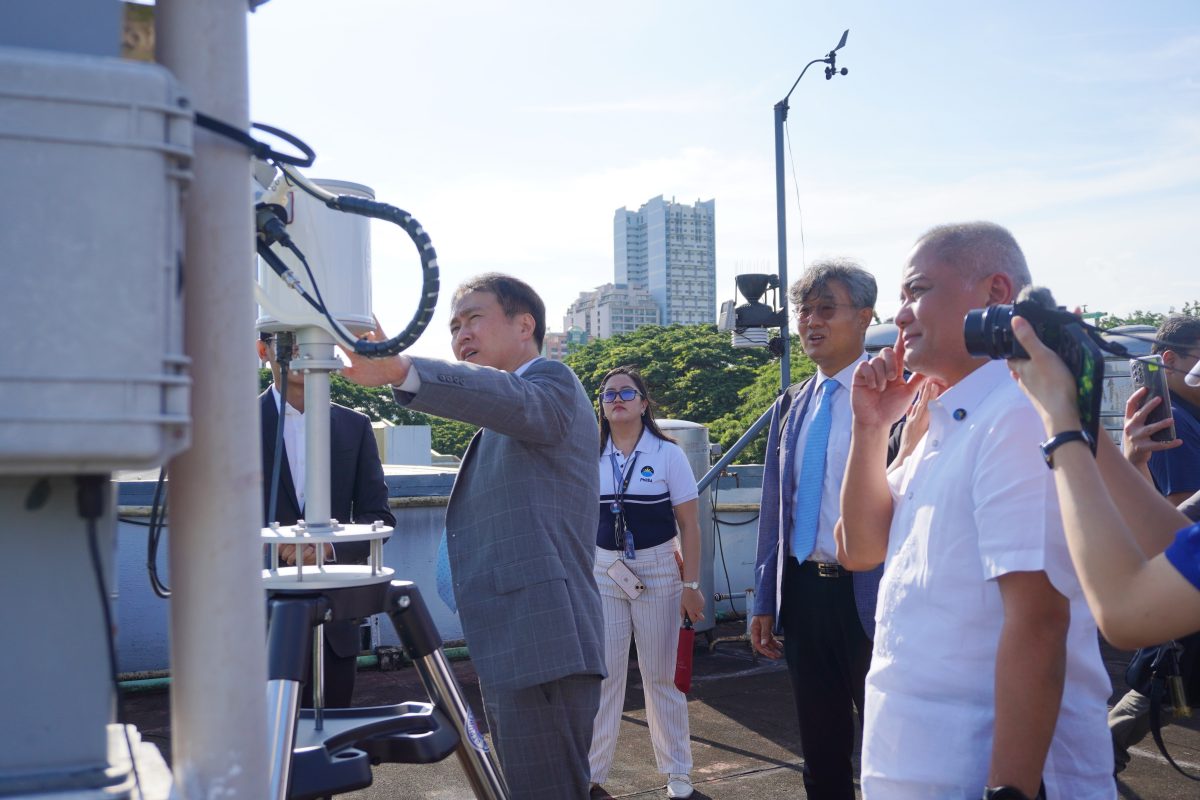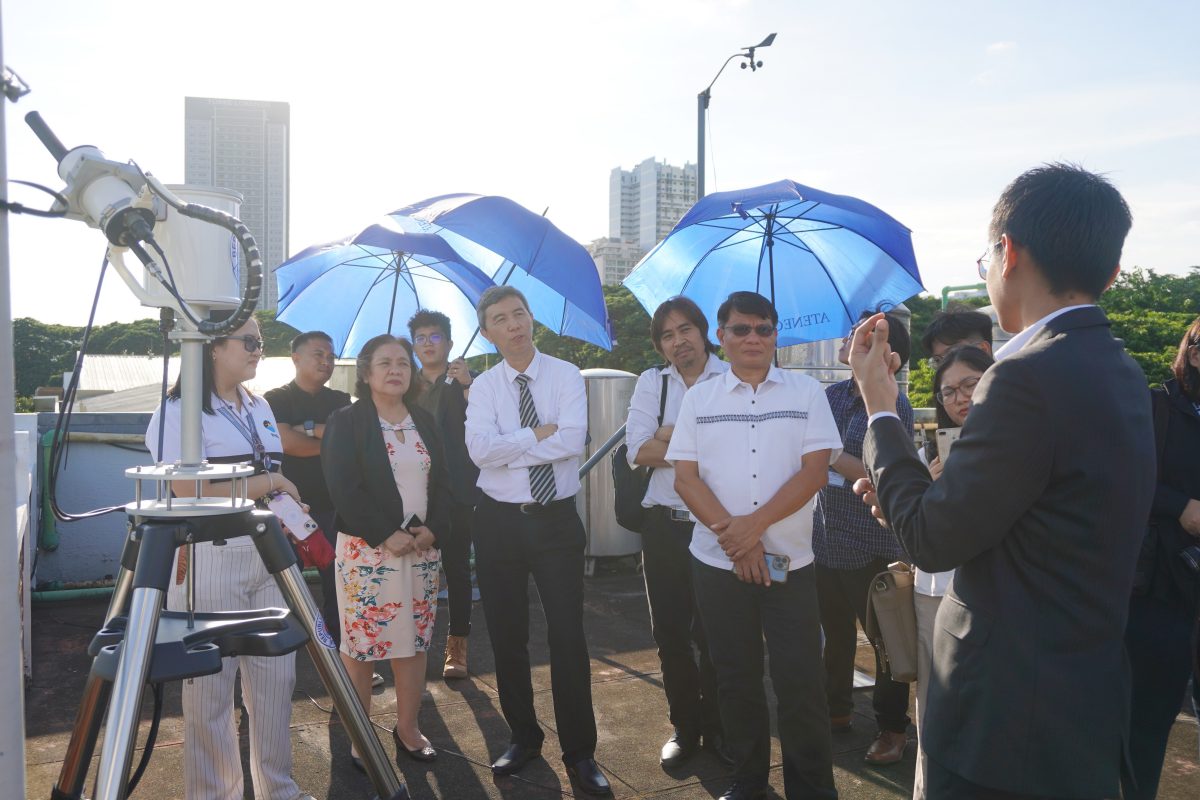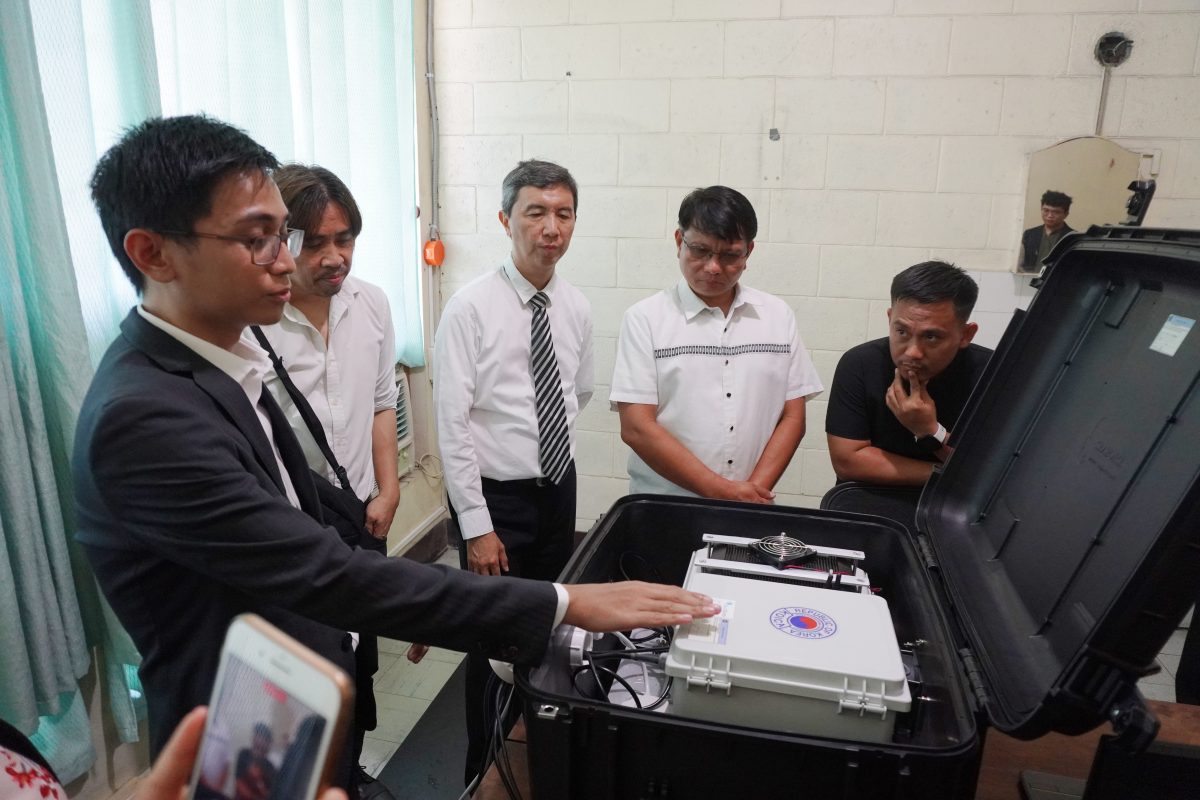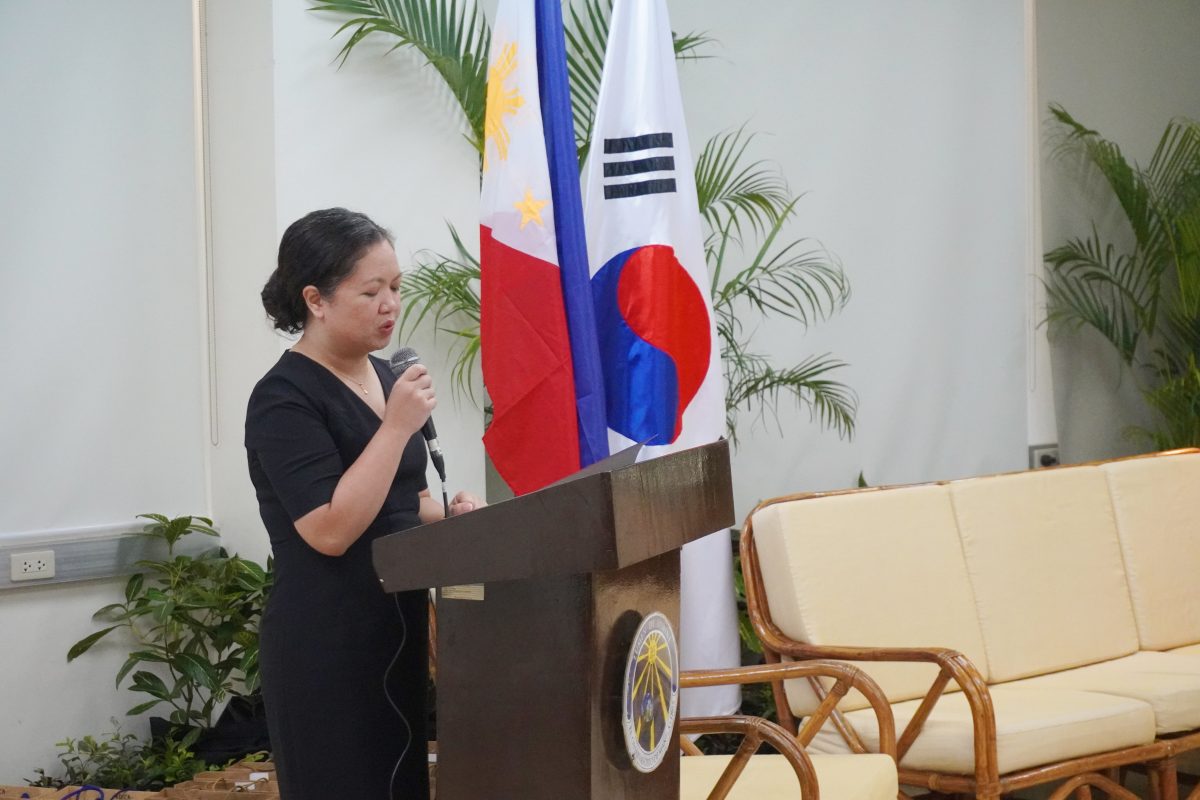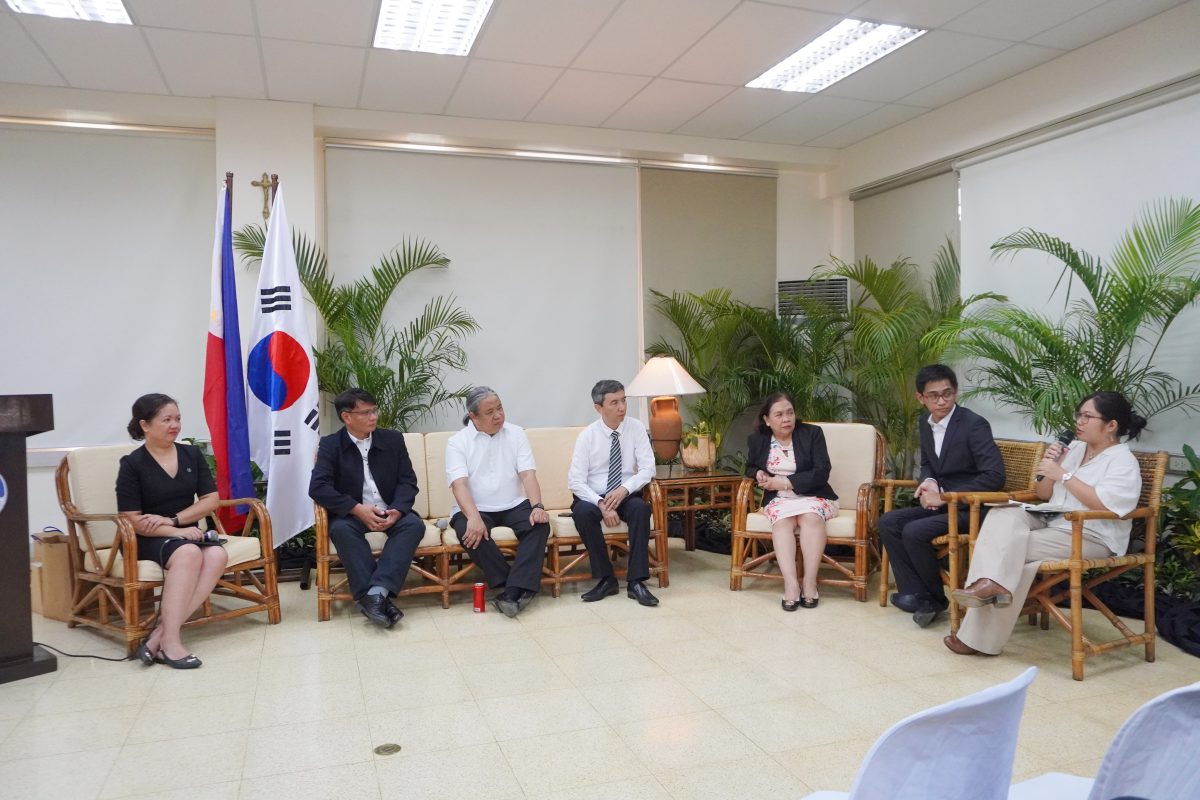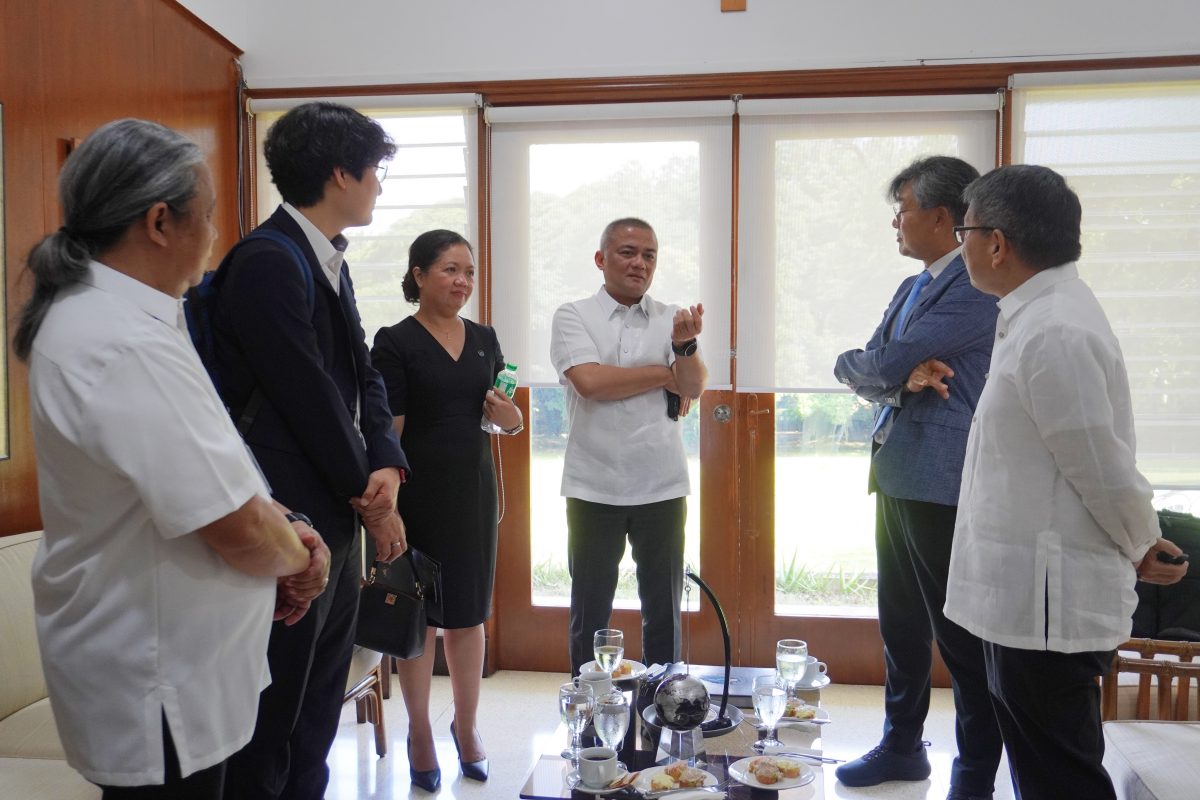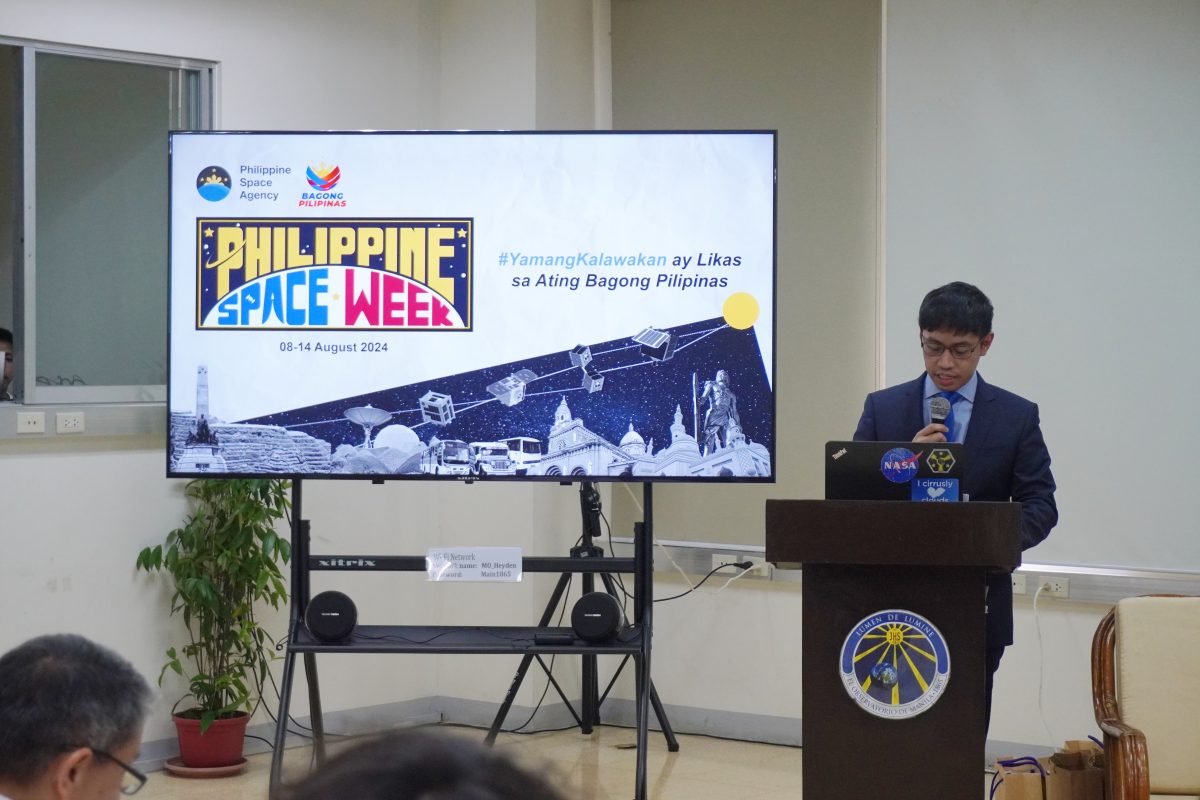The Philippine Space Agency (PhilSA) and the Korea International Cooperation Agency (KOICA) marked a significant milestone in air quality monitoring, forecasting, and research with the ceremonial turnover of Pandora instruments on 12 August 2024 at the Heyden Hall, Manila Observatory during Philippine Space Week.
Commemorating the growing partnership between the Republic of the Philippines and the Republic of Korea on improving and advancing air quality research in the country, the turnover stemmed from the formal signing of the Record of Discussion in August 2023 between PhilSA and KOICA. Present at the event were PhilSA Director General Dr. Joel Joseph Marciano, Jr., Ambassador of the Republic of Korea to the Philippines H.E. Lee Sang-hwa, and KOICA Country Director Kim Eunsub.
A key component of the Pan-Asia Partnership for Geospatial Air Pollution Information and the Pandora Asia Network (PAPGAPI-PAN) Philippines project is the comprehensive monitoring of air quality across the country through both ground-based and satellite measurements. The project employs Pandora instruments to continuously measure air quality within a 500-m to 10-km range during daylight hours. Complementing these ground-based measurements is the Geostationary Environment Monitoring Spectrometer (GEMS) satellite, launched by the Republic of Korea in February 2020 and the first of its kind dedicated to air quality monitoring from a geostationary orbit. It provides hourly air quality data on a wider scale, enhancing the ground-based readings from the Pandora instruments.
During his opening remarks, PhilSA Director General Dr. Joel Joseph Marciano, Jr. expressed that the turnover of Pandora instruments is a significant milestone that embodies the spirit of collaboration, progress, and shared commitment.
“By nurturing and harnessing Yamang Kalawakan (“space riches”) and integrating the benefits of space into Filipino society and culture, we will reach our common destination of a nation bridged, uplifted, and empowered through the peaceful uses of outer space […] with international cooperation as a vital tool to achieve this mission,” PhilSA Director General Marciano, Jr. added.

PhilSA Director General Marciano, Jr. also expresses his gratitude to KOICA and the Korean Embassy in the Philippines for their stewardship and for entrusting the Agency with this project.
“With this turnover, the initiative has entered the implementation phase. It aims to enhance the Philippines’ air quality monitoring capabilities by integrating satellite and ground measurements, with Pandora instruments reading real-time, calibrated air quality data. This will support evidence-based [and] science-based policymaking and strengthen national capacity to address air pollution,” H.E. Lee Sang-hwa, Ambassador of the Republic of Korea to the Philippines, highlighted in his message.

Ambassador Lee adds that the strategic sites were chosen to cover varying pollutant concentrations, thereby offering a comprehensive view of the country’s air quality.
The first Pandora instrument was installed at the Manila Observatory in Quezon City on 19 July 2024, with additional installations scheduled for Cebu, Puerto Princesa, and Ilocos Norte by the end of September this year. These respective sites were strategically chosen to represent both urban air quality (Manila and Cebu) and rural or background air quality (Palawan and Ilocos). The instruments will then be operated by selected partner institutions, including the Department of Environment and Natural Resources–Environmental Management Bureau (DENR–EMB), Manila Observatory, University of San Carlos, and Mariano Marcos State University.
Once installed, local operators will be responsible for the maintenance and operation of the Pandora instruments, working in collaboration with PhilSA. PhilSA’s role will focus on interpreting the data and integrating it with satellite observations, particularly from the GEMS satellite. By using Pandora data as validation points, PhilSA can develop a comprehensive nationwide air quality map, which will be instrumental in shaping policies and plans to enhance air quality across the Philippines.
Capacity building for its local partners and other relevant institutions on the utilization of Pandora and GEMS data is also set out to be implemented this year. PhilSA will continue to oversee the sustainable operation of the Pandora instruments, together with the local operators.






